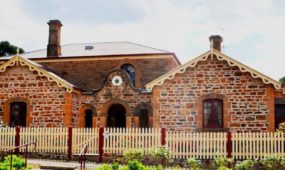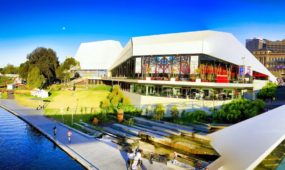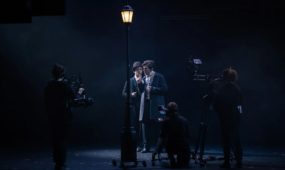Time to Sit Down and Shut Up
Arts
THE Southern Hemisphere’s first ever learning-disability led film festival kicks off in South Australia’s Barossa Valley this October. Inspired by the United Kingdom’s Oska Bright, members of the local company Tutti Ensemble have created a film festival with one criteria: filmmakers must have a learning disability.

Sign up to receive notifications about new stories in this category.
Thank you for subscribing to story notifications.
THE Southern Hemisphere’s first ever learning-disability led film festival kicks off in South Australia’s Barossa Valley this October. Inspired by the United Kingdom’s Oska Bright, members of the local company Tutti Ensemble have created a film festival with one criteria: filmmakers must have a learning disability.
“I think it is quite hard for people with a learning disability to get involved with filmmaking,” says Sit Down Shut Up and Watch (SDSU&W) committee member Samantha Charles. “That is why it is good that we have the festival for people like us who are quite inspired and enthusiastic about creating films.”
The challenge is in loosening the grip of others who, rightly or wrongly, feel it is better to let other people do it for learning disabled people.
SDSU&W Film Festival was born out of a series of workshops Oska Bright held in Adelaide and regional South Australia in 2011. Keeping Tutti’s commitment to developing programs outside the metropolitan area, the English filmmakers with a learning disability taught filmmaking with accessible equipment and software over six weeks. This peer-to-peer teaching was the catalyst for the new festival and its philosophy.
“It's about having a cultural sort of shift and nurturing a culture for young disabled filmmakers,” says Festival Chair Lee Witczak.
“People are only as disabled as their environment, so if we start to create a culture where it is acceptable for everybody to be able to create, then we are automatically adapting the culture to enable that to happen.”
SDSU
“It is really important that a space is available for learning disabled people to be in control of telling their own stories,” says Martin Sawtell of Access2Arts, South Australia’s peak disability-led arts organisation. “The challenge is in loosening the grip of others who, rightly or wrongly, feel it is better to let other people do it for learning disabled people.”
He says these workshops ultimately lead to people with learning disabilities telling their own stories without others re-interpreting or re-contextualising their view.
“It empowers the voice of learning disabled film makers and demonstrates the capacity of all disabled people,” adds Sawtell.
A call for entries earlier this year garnered 43 entries from across Australia as well as the United Kingdom, Ireland, Israel and Germany.
Keeping its commitment to programs outside of metropolitan areas, the festival will be held on Friday 31st October at the Angaston Town Hall in the Barossa Valley. There they will screen 41 of the 43 entries and have an awards ceremony.
Jump to next article



